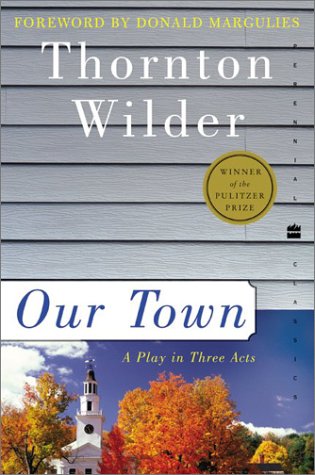Friday, August 07, 2009
Gone With the Wind
I've been thinking a lot about that statement for the past three weeks, trying to determine if it's true. I have come to the conclusion that it is.
For the past four and a half years, I have actually kept track of every book I have read (the lists appear on this blog every January). And then, I can also think back to books I read prior to 2005, and only a few jump to mind as really, really good books. My list of favorite books includes such disparate titles as The Baby Name Wizard by Laura Wattenberg, John Adams by David McCullough, and The Lord of the Rings by J.R.R. Tolkien. I really enjoyed The Quincunx by Charles Palliser last year, and Endurance by Caroline Alexander has stayed with me for years, though I'm not sure it was the book itself or the incredible true story it told that made it so gripping. I sympathized with the monster in Frankenstein by Mary Shelley, and with John Wilkes Booth in Manhunt by James L. Swanson. My eyes were opened by Blink and The Tipping Point by Malcolm Gladwell, and I was taken in by the surprise ending of Orson Scott Card's Ender's Game. There are few pleasures in life equal to sitting down with The Complete Calvin and Hobbes by Bill Watterson, and thanks to a college English class that studied it, I think often of the themes of A River Runs Through It by Norman Maclean.
But none of those books can touch Gone With the Wind. It is, hands down, the best book I have ever read. By a considerable margin.
I didn't expect this going in. I watched the movie a long time ago, but had forgotten everything except that there was a swear word and a fire. I actually sort of had the impression that the novel was a bit "girly," a romance novel more than anything else.
But Gone With the Wind is much more than a romance. It is more than a war novel. It is a partisan, wistful, strong-minded homage to the Old South and the crumbling of a way of life. Throughout the book, like petals off a dying flower, the traditions of the antebellum plantation life to which Scarlett O'Hara was raised dry up and fall away, one by one, and blow away, "gone with the wind that has swept through Georgia." It starts seemingly small, and you think it can't get any worse when Sherman's army blows through and rips the heart out of Georgia. But that's only the mid-way point of the novel.
Mitchell proves herself a genius storyteller, gluing me to every one of the nearly one thousand pages of the book. I read it in less than three weeks. The plot and the action were paced perfectly - every day when I went to bed I would think about where I was in the story that morning, and so much had happened since then. Lurking at every page turn, at every new chapter, was some exciting new development, some entertaining conversation, some heartfelt lamentation for the Confederacy.
Yes, after reading Gone With the Wind, I almost sympathize with the Confederacy. Surely Mitchell presents a glorified view of it, where every man is a gentleman and every slave is happy and well-treated. But the book opened my eyes to the sufferings and longings of the everyday civilians of the Civil War - especially the women of the South. I understand what they believed in, why they believed in it, and why they were willing to die for it. I don't, ultimately, agree with them. But for the first time, I think I really understand what they mean when they call the part of Virginia - the nexus of the Confederacy - in which I live "occupied Virginia."
When I finished the book at 12:50am last night, having read the final 50 pages in a single trance-like sitting, as each of the pillars that had supported Scarlett were toppled from under her, I felt the pain of war and the pain of the South, and Scarlett herself became the embodiment of the American spirit, rising above it all because "tomorrow is another day."
Scarlett O'Hara and Rhett Butler are two of the most real characters I've ever encountered in fiction (or even nonfiction, for that matter). The paradox is that neither of them is a particularly good person. Scarlett is selfish and vain and immoral and unscrupulous. Rhett is a blackguard, a murderer, a philanderer, and a narcissist. But they fascinate me. I cannot like Scarlett, but I respect her, for she is strong and driven to get what she wants. I cannot respect Rhett, but I like him because of his cavalier attitude and his way with words. They both make some terrible choices that I hope I would never make in the same situation. But I was swept away by them, particularly by their interactions with one another.
More than anything else, I think the reason Gone With the Wind is now my new favorite book is that it appealed to everything I enjoy about reading. Well-phrased language, compelling characters, historical insights about things I thought I knew but didn't, detailed and overwhelming ability to conjure up a particular time and place, unexpected plot turns. This is a masterpiece of literature, and it deserves its place as the most popular and highly acclaimed American novel of all time. If you have not read it, do so. My only regret is that it took me this long to discover it myself.
Comments: Post a Comment







